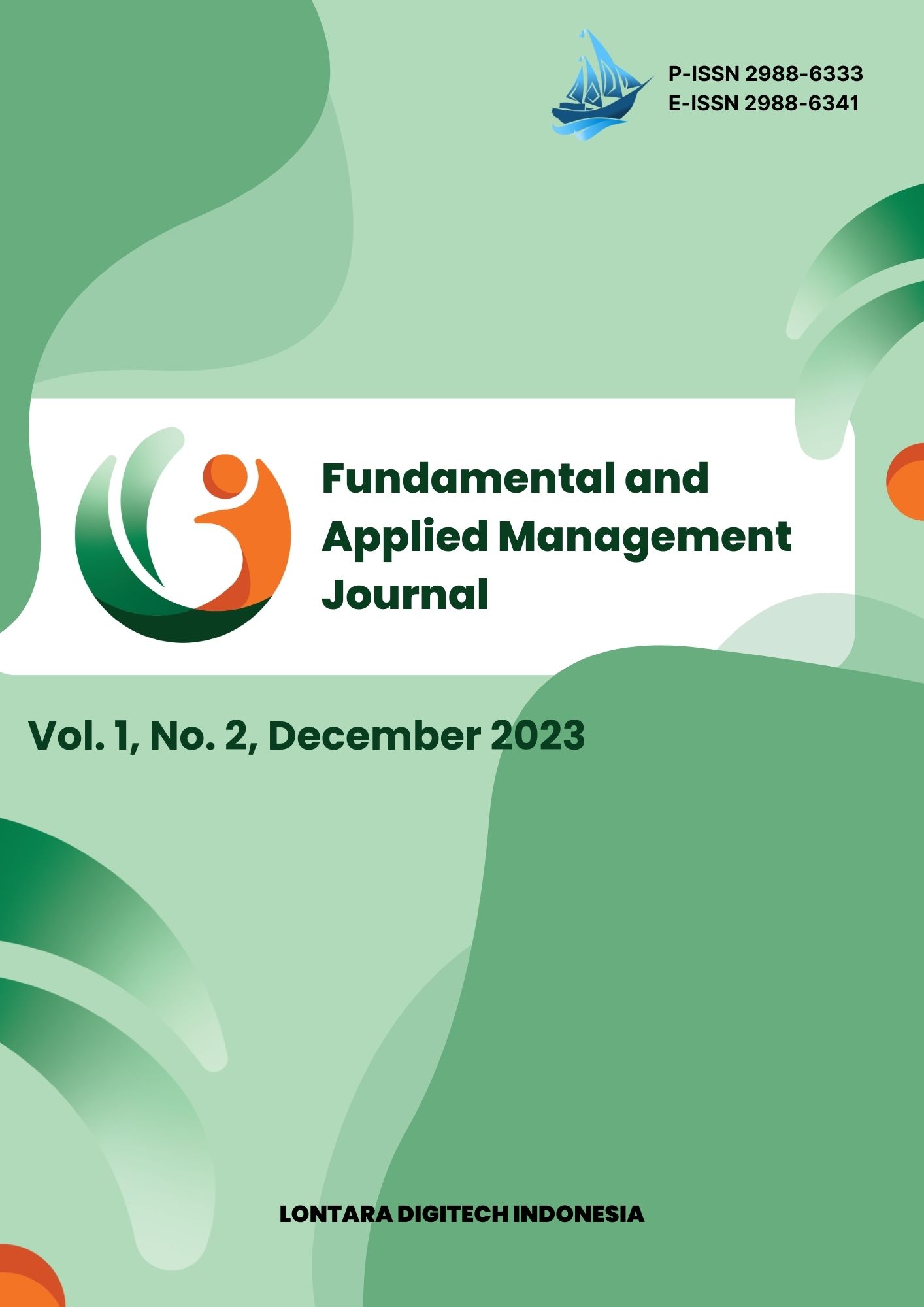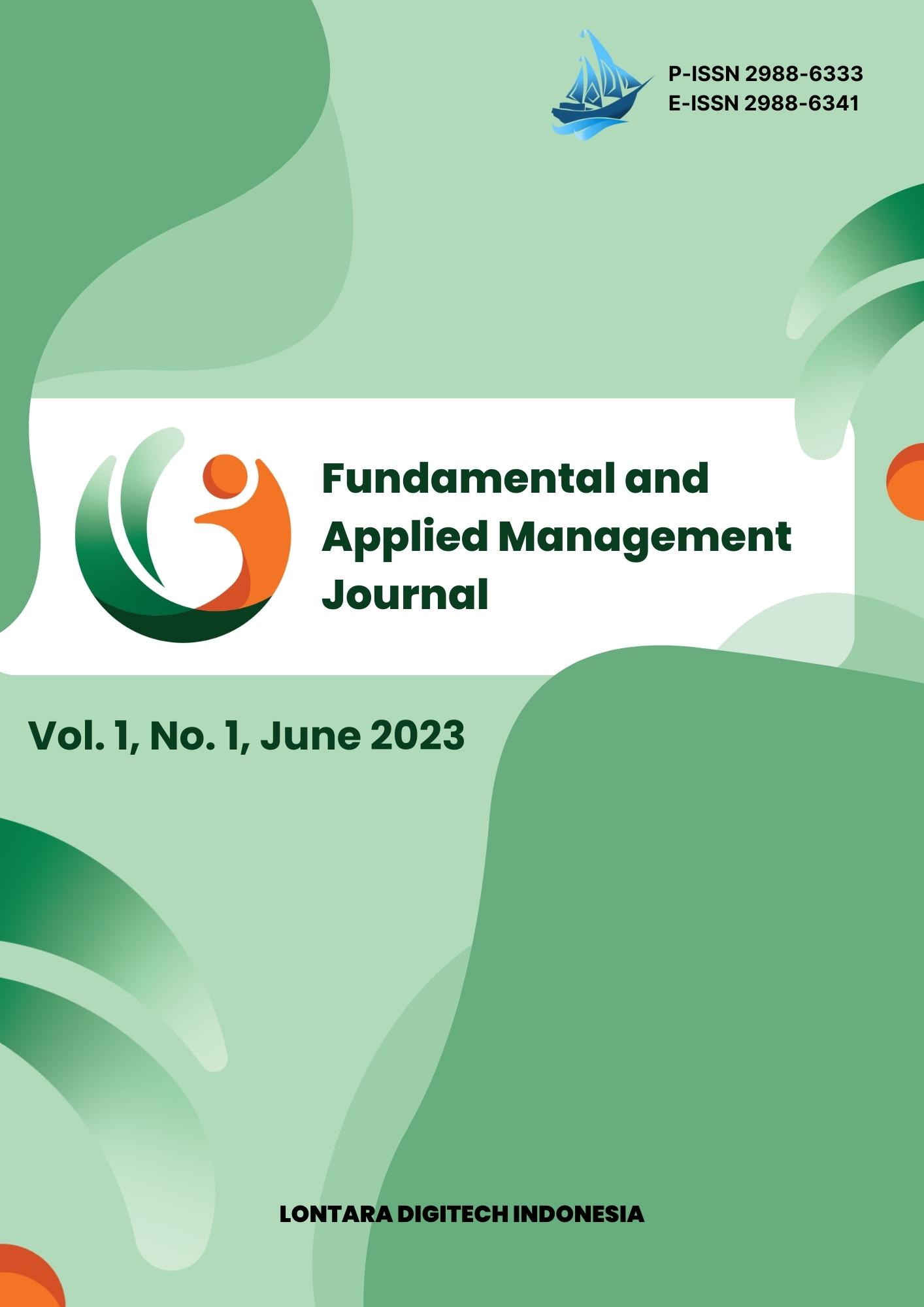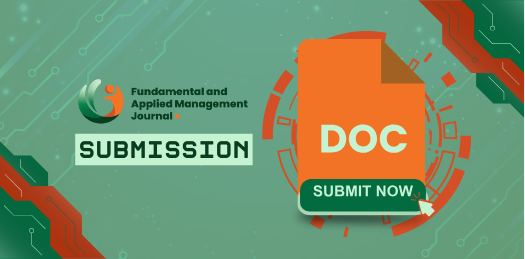Human Capital Theory as a Foundation for Investment Among the Young Generation
DOI:
https://doi.org/10.61220/famj.v2i2.2248Keywords:
Human Caphytal Theory, Investment, Young GenerationAbstract
This study makes a significant contribution to understanding the role of Human Capital Theory in the investment decisions made by students, with a focus on human capital development. Through data analysis gathered from respondents at Universitas Negeri Makassar, the research explores the importance of investing in education, skills, and financial literacy as crucial elements in strengthening individual capacity for success. Using a descriptive method, the findings indicate that respondents exhibit consistent behavior toward human capital investment, reflecting a strong awareness of the importance of human capital development in achieving career success. The results underscore the critical role that Human Capital Theory plays in shaping students' investment decisions, highlighting the value they place on educational and skill development. The implications of this study reinforce the need for effective educational policies that enhance the quality of human resources within the academic environment, providing a solid foundation for students to achieve long-term success in their professional lives.
References
Ajzen, I. (1991). The Theory of Planned Behavior. Organizational Behavior and Human Decision Processes, 50(2), 179–211.
Arifin, A. S. (2023). Human Capital Investment: Meningkatkan Daya Saing Global Melalui Investasi Pendidikan. Jurnal Education and Development, 11(2), 174–179. https://doi.org/10.37081/ed.v11i2.4672
Bandura, A. (1997). Self-efficacy: The Exercise of Control. Freeman.
Barberis, N., & Thaler, R. (2003). A Survey of Behavioral Finance. Handbook of the Economics of Finance, 1, 1053–1128.
Becker, G. S. (1993). Human Capital: A Theoretical and Empirical Analysis with Special Reference to Education (3rd ed.). University of Chicago Press.
Eccles, J. S., & Wigfield, A. (2002). Motivational Beliefs, Values, and Goals. Annual Review of Psychology, 53, 109–132.
Fitri Nur Mahmudah, L. D. P. (2016). Keefektifan Human Capital Investment Pendidikan Tenaga Kependidikan si Universitas Negeri Yogyakarta. Jurnal Akuntabilitas Manajemen Pendidikan, 4(1), 77–86.
Hanushek, E. A., & Woessmann, L. (2020). The Economic Impacts of Learning Losses. OECD Education Working Papers, No. 225. OECD Publishing.
Honicke, T., & Broadbent, J. (2016). The Influence of Academic Self-Efficacy on Academic Performance: A Systematic Review. Educational Research Review, 17, 63–84.
Istiqomah, N. (2020). Investasi Non Fisik Melalui Human Capital. Jurnal Pendidikan Ekonomi, 13(2), 116–124. http://journal2.um.ac.id/index.php/jpe/index
Lisnawati, C. (2007). Aspek ekonomi dalam pendidikan. Jurnal Pendidikan Dan Pembelajaran, 4(2), 73–82. https://jurnal.fkip.unla.ac.id/index.php/educare/article/view/50/50
Niken Wilantari, R. (2021). Peran Pendidikan dalam Peningkatan Kesejahteraan Masyarakat Pendekatan Teori Absolute Income dan Teori Investasi Modal Manusia. Jurnal Manajemen Jayanegara, 13(1), 20–26. https://doi.org/10.52956/jmj.v13i1.28
Nizar, N. I., & Nazir, A. (2020). Faktor Human Capital Pada Pertumbuhan Ekonomi Kreatif. Jurnal Mandiri : Ilmu Pengetahuan, Seni, Dan Teknologi, 4(1), 52–65. https://doi.org/10.33753/mandiri.v4i1.103
Nurkholis, A. (2016). TEORI PEMBANGUNAN SUMBERDAYA MANUSIA: Human Capital Theory, Human Investment Theory, Human Development Theory, Sustainable Development Theory, People Centered Development Theory. 1–16.
OECD. (2020). OECD/INFE 2020 International Survey of Adult Financial Literacy. OECD Publishing.
Putri, N. K. (2013). Peran Human Capital terhadap Kesuksesan Organisasi: Karyawan Adalah Investasi. Jurnal Administrasi Kebijakan Kesehatan, 11(2), 93–97.
Rahmadia, U. S. (2023). Psychology Factors, Risk Perception, Social Media Sentiment Dan Herding Behavior Terhadap Keputusan Investasi (Studi pada Investor …. http://digilib.unila.ac.id/70396/%0Ahttp://digilib.unila.ac.id/70396/3/SKRIPSI TANPA BAB PEMBAHASAN.pdf
Sidabutar, S. R., Sari, L., & Aqualdo, N. (2023). Pengaruh Aglomerasi Industri Dan Human Capital Investment Terhadap Pertumbuhanekonomi Di Wilayah Pekan Sikawan. Economica, 11(1), 25–34.
Trautwein, U., Lüdtke, O., Roberts, B. W., Schnyder, I., & Niggli, A. (2012). Different Forces, Same Consequence: Conscientiousness and Academic Effort Can Compensate for Low Intelligence in Predicting Academic Performance. Journal of Personality and Social Psychology, 102(3), 525–537.
Wulandari, I., Susanti, R., & Rahayu, N. (2023). Financial Literacy, Subjective Norms, and Investment Intentions among University Students. Jurnal Manajemen, 27(1), 88–101.
Downloads
Published
Issue
Section
License
Copyright (c) 2024 Anis Pri Nandini, Ari Darni Latif (Author)

This work is licensed under a Creative Commons Attribution-ShareAlike 4.0 International License.













 Email: famj@lontaradigitech.com
Email: famj@lontaradigitech.com
